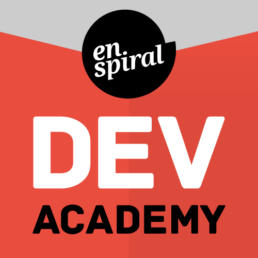Identity, Values and Strengths
My personal values
A situation where I had an ethical decision to make. What values did I weigh up? What were the consequences of my action?
My best friend and I were going out and he made a bulge in his parents car when trying to park it. It was not for granted that he could use the car (It was quite a nice one) so we decided to blame forces outside of our control and agreed to tell his parents it was a deer.
Next day his father confronted me with the question of whether I had an idea of what was the cause for the bulge. I had the choice to
a) lie and be dishonest or
b) tell the truth and be anti-loyal to my friend!
I went for b).
It turned out that the father already new the truth and just wanted to test my values (so mean). I have really struggled to make that decision as both "friendship/loyalty" and "honesty" are important values for me. Looking back I still do not know which choice was better but I have learned that I am a terrible liar ;-)
How my culture has influenced my values and identity.
I have grown up with a relegious background. This heavily influenced my internal belief- and value-system from the start. I have spent the last 10 years to get conscious about those internalised values and beliefes and started to reshape them.
| Old belief / value | New belief / value |
|---|---|
| There is an absolute right and wrong. The church knows what it is and you commit a sin with related punishment if you do the wrong thing or not do the right. | There is no absolute right and wrong. There is only helpful and less helpful in the context of a situation or relationship. Less helpful actions provide opportunities for learning and growth. |
| My path is shaped by the goodwil of god. If I succeed it's for his mercy, if I fail, I haven't tried / prayed hard enough. | The current moment is the result of my past decisions and I am fully responsible for my actions. |
| I am a sinner by nature ("breaking the law of god by pure existence") and require the absolution of an outside force in order to get cleared | You are OK and loved as you are and there is no scorecard / punishment system |
| No pain no gain, if it does not work out, try harder. If it was too easy it's probably not valuable enough | While "hard working" is a quality it must be balanced to achieve sustainable results. Also "smart" working is supperior to "hard" working, which is both about efficiency (do the thing right) and effectiveness (do the right thing). |
Strenghts and Limitations
My strengths and limitations in terms of my learning and career development
- Strengths
- Goal oriented
- Disciplined
- Purpose driven
- Hard working
- Creative / thinking outside of the box
- Caring
- Limitations
- Too focused on details, going down all the rabbit holes
- Exhaustion / lack of energy / manage balance
- Introverted (can also be a strenght but todays working-world benefits the extroverts so I have to chose wisely where to put in my energy)
Which of my strenthts might help in my learning journey? How they intersect with learning obstacles
- I think my strenghts align well with the concepts of "deliberate practice", "flipped class room", "self-driven learning" etc.
- The problem is that often I study too hard and then I get exhausted, thus gaining diminishing returns of additional learning efforts.
- I often try to solve a problem for myself for too long. Being able to effectively collaborate on a problem will be key for my future success.
An example of where I have tried to work productively with others, but there was resistance or tension. What strategies did I use at that time, how effective were they and my reflection on what other strategies I would try now and why
I have experienced many of those situations in my work life in my role of a project / product manager. An introvert by nature, I tend to prescribe the plan and make the team follow the path. If the team cannot figure it out themselves I tend to take the challenge away from the team, go into my cave, figure it out, come out and tadaaaa present the solution. This is anti-collaborative and anti-agile and causes frustration, people feeling undervalued, losing buy-in and motivation. It works well in war / command-chain like situations but it's not a good approach for solving complex problems. Agile problem solving requires cross-functional collaboration, committement and alignment of the challenge and autonomy to execute. It's not "build a bridge", it's "we need to cross the river, let's figure out how".

